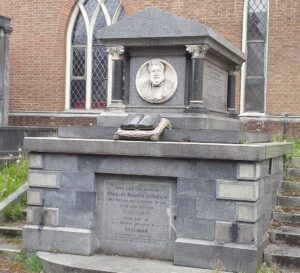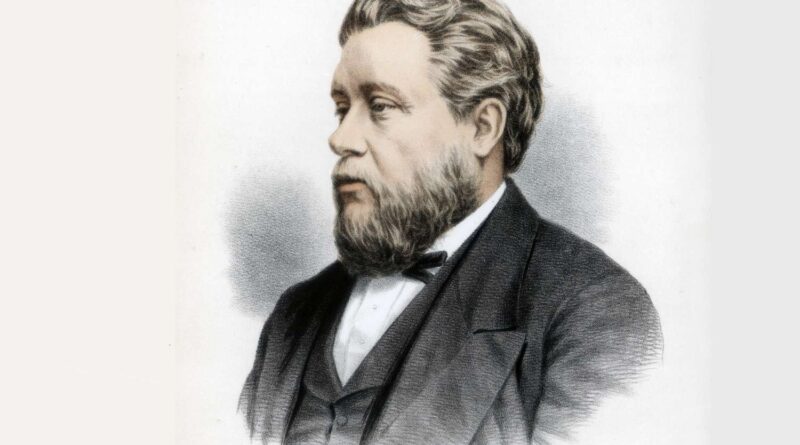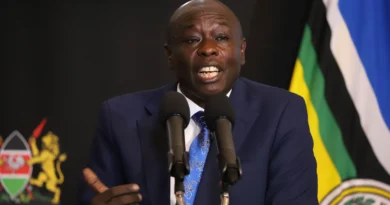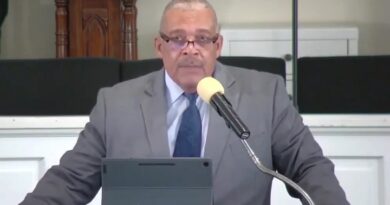Charles Spurgeon: The Legacy of the Prince of Preachers
Charles Spurgeon was an English Baptist preacher and author. Charles Haddon Spurgeon remains highly influential among Christians of various denominations, to some of whom he is known as the “Prince of Preachers.”. He was a strong figure in the Reformed Baptist tradition, defending the 1689 London Baptist Confession of Faith and opposing the liberal and pragmatic theological tendencies in the Church of his day.
Charles spurgeon’s early life
Charles Haddon Spurgeon was born in Kelvedon, Essex, on June 19, 1834, just ten days after the great William Carey died in India. Because of economic conditions, the young Spurgeon was sent to live with his grandparents at the age of 10 months. His grandfather, James Spurgeon, ministered to the church at Stambourne for 54 years. He has greatly impacted the young man’s life in those few years with his grandparents.
Spurgeon had no formal education beyond New Market Academy, which he attended from August 1849 to June 1850. He was good in Puritan theology, natural history, Latin, and Victorian literature.
Ministry
Charles struggled over his relationship with God for several years. Spurgeon’s conversion from nominal Congregationalism came on 6 January 1850, at age 15. On his way to a scheduled appointment, a snowstorm forced him to cut short his intended journey and to turn into a primitive Methodist chapel in Artillery Street, Newtown, Colchester, where he believed God opened his heart to the salvation message.
The text that moved him was Isaiah 45:22 (“Look unto me, and be ye saved, all the ends of the earth, for I am God, and there is none else”). Later that year, on 4 April, he was admitted to the church at Newmarket. His baptism followed on 3 May in the river Lark, at Isleham. Later that year, he moved to Cambridge, where he later became a Sunday school teacher.
Spurgeon preached his first sermon in the winter of 1850–51 in a cottage at Teversham while filling in for a friend. From the beginning of Spurgeon’s ministry, his style and ability were considered above average. In the same year, he was installed as pastor of the small Baptist church at Waterbeach, Cambridgeshire, where he published his first literary work, a gospel tract written in 1853.
After a series of events, young Spurgeon was asked to pastor this once influential congregation in 1854. Despite his doubts about his age, 20-year-old Charles Spurgeon had become a pastor in the line of Keech, Gill, and Rippon. So great was the impact this novice preacher made on the people at New Park Street and the city of London that, by 1855, it was evident a new church building was necessary to accommodate their growing numbers.
Not only did Spurgeon gain a field of ministry at New Park Street, but he also gained a wife, Susanah Thompson, on June 19, 1834, whom he later bore two twin sons, Charles and Thomas, on September 20, 1856.
Spurgeon authored sermons, autobiographies, commentaries, books on prayer, devotionals, magazines, poetry, and hymns. Many sermons were transcribed as he spoke and were translated into many languages during his lifetime. He is said to have produced powerful sermons of penetrating thought and precise exposition. His oratory skills are said to have held his listeners spellbound in the Metropolitan Tabernacle, and many Christians hold his writings in exceptionally high regard among devotional literature.
Charles’s Theological Views
Early on, it became apparent that Spurgeon had no fear of labeling himself. He labelled himself by his preaching, not by systematic theology. He was Calvinistic but not hyper-Calvinist. Spurgeon never fled from the seeming incompatibility of the Sovereignty of God and the responsibility of man to repentance.
On 5 June 1862, Spurgeon challenged the Church of England when he preached against baptismal regeneration. However, Spurgeon taught across denominational lines as well; for example, in 1877, he was the preacher at the opening of a new Free Church of Scotland church building in Dingwall. It was at the new Tabernacle that Spurgeon found a friend in James Hudson Taylor, the founder of the inter-denominational China Inland Mission. Spurgeon considered his objections to ordination and the title Reverend as scripturally based, a constant feature of his theology.
Spurgeon’s theology was all the more radically biblical for being unsystematic. In the late 1850s, he tried to dovetail biblical teaching on human responsibility with his doctrine of election. By 1860, he became convinced it couldn’t be done; something had to yield. Since both doctrines were woven into the fabric of his Bible, however, Spurgeon decided to not sacrifice either. Instead, he sacrificed the possibility of a thoroughly systematic theology.
READ: BILLY GRAHAM: HEROES OF FAITH EP 1
Above all, Spurgeon was a preacher of the Word. Not the shallow, self-serving allusions to the Word we hear today. He was passionately tied to the whole counsel of God. In The Greatest Fight in the World, he said, “The Word is like its author, infinite, immeasurable, without end. If you were to be ordained to be a preacher throughout eternity, you would have before you a theme equal to everlasting demands.” That undying allegiance to God’s Word brought great triumph in Spurgeon’s life and sometimes brought great controversy.
Late in Spurgeon’s life, an incident began almost as a footnote but would become a headline in the body of Christ. In March and April 1887, two articles appeared in Spurgeon’s magazine, The Sword and Trowel. The articles pointed out the steady decline that seemed to be taking place among evangelicals. Following those articles were several more in which Spurgeon warned of the influence of liberalism in general and Arminianism in specific. In all of these articles, Spurgeon spoke of the downward grade evangelical churches were taking. This became known as the downgrade controversy.
Charles’ Legacy
Preaching wasn’t Spurgeon’s only passion. He was involved in extensive social endeavours, especially in orphanage work. Hundreds of children who otherwise would have roamed the streets as thieves and vagrants were housed, fed, and trained in the Word of God.
Spurgeon supported the work of the mission financially and directed many missionary candidates to apply for service with Taylor. He also aided cross-cultural evangelism by promoting “The Wordless Book,” a teaching tool he described in a message on 11 January 1866, regarding Psalm 51:7: “Wash me, and I shall be whiter than snow.” The book has been and is still used to teach people without reading skills and people of other cultures and languages, young and old, about the gospel messages.

Spurgeon had published more words than could be found in the Encyclopaedia Britannica. His church launched 66 parachurch ministries, including two orphanages, a ministry to policemen, a book fund, a nursing home, and a clothing drive. Spurgeon’s sermons were translated into 40 languages. including Gaelic, Japanese, and Dutch. His writings were found in the hands of Christians in China, soldiers in India, preachers in Tennessee, and sailors in San Francisco.
Charles’ impact is tremendous in Christian lives, schools, society, and the world at large. His teachings changed lives and are still changing lives, his contribution helped souls up till now, and people are still benefiting from the great legacies he left behind. Christians are advised to follow his relentless footsteps in teaching and spreading the right gospel.
Content Credit| Igabkuma Rita Doom,
Picture Credit | https://en.wikipedia.org/wiki/Charles_Spurgeon




